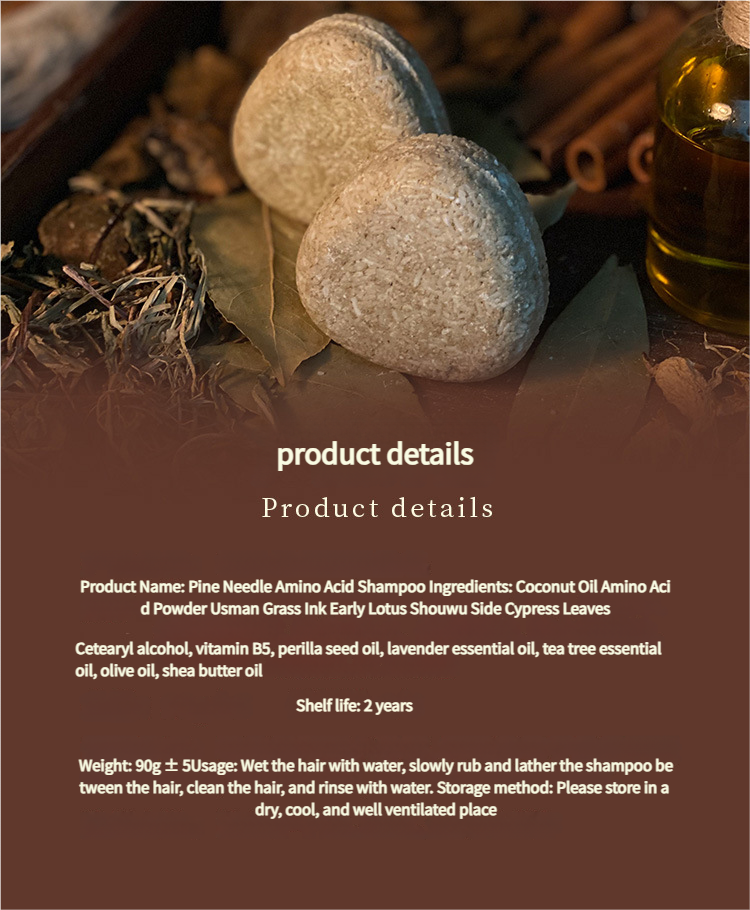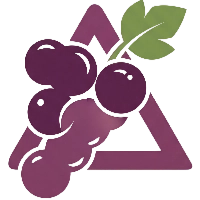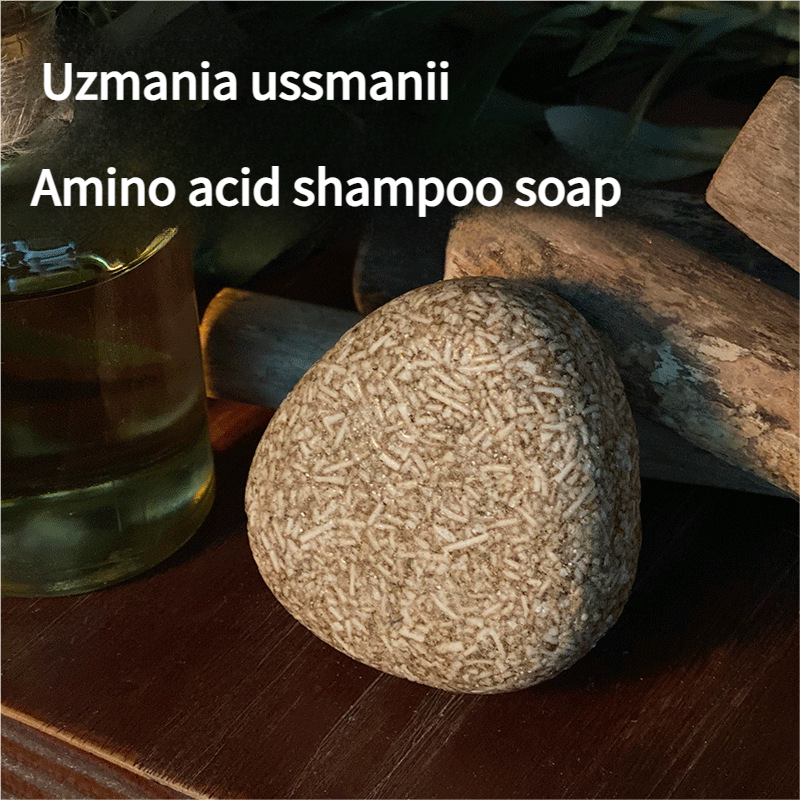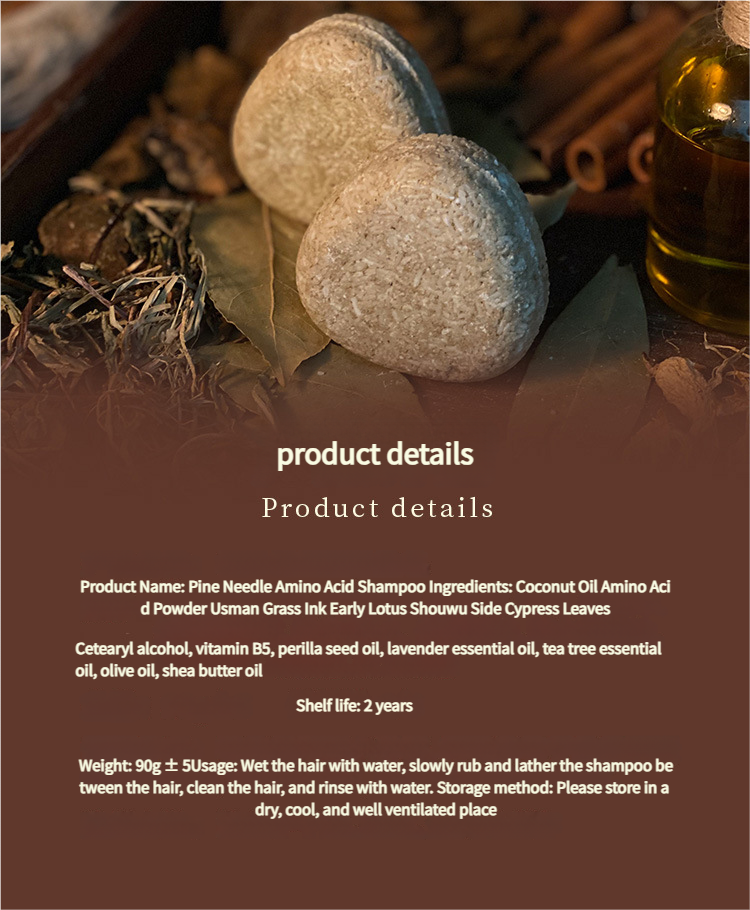Is herbal hair soap a smart, eco-friendly choice for your hair? Absolutely. You get simple, natural care without harsh chemicals or plastic waste. Most herbal hair soaps skip plastic bottles and use biodegradable ingredients that break down safely, so they do not harm water or wildlife. Think about your daily hair routine. Does it match your values for a cleaner planet? You might be surprised by how much herbal hair soap can change the way you care for your hair and the earth.
Key Takeaways
Herbal hair soap is a simple and natural way to wash your hair. It helps you use less plastic and fewer bad chemicals.
Herbal hair soap keeps your scalp healthy and your hair strong and shiny. It does this by not using harsh detergents and keeping your hair’s natural oils.
You should pick herbal soap that matches your hair type and scalp needs. Check for natural oils and stay away from fake chemicals.
Wash and store your herbal hair soap the right way. This makes it last longer and keeps your hair clean and fresh.
Your scalp may need time to get used to herbal hair soap. Be patient, and you will have healthier hair and help the planet.
Why Minimalist Hair Care?
Simplicity
You may see many bottles and products in your bathroom. This can make you feel stressed or confused. Minimalist hair care helps you use fewer things. Your routine gets faster and easier. You do not spend much time washing or styling your hair. You also worry less about your hair. Many people like minimalist routines for these reasons:
Your hair gets healthier and shinier because there is no product buildup.
You save money since you only buy what you need.
You avoid scalp problems like irritation and dryness from too many products.
You learn what your hair needs, so you can choose the best products.
You skip harsh chemicals such as sulfates, parabens, and silicones.
You start good habits, like washing less and using less heat.
You enjoy a simple routine that gives you peace of mind.
Some people use only shampoo or only soap to keep things simple. Others make their own products to have more control and create less waste. No matter what you choose, minimalist hair care lets you decide what works for you.
Eco Benefits
Minimalist hair care helps you and the planet. Every time you skip a bottle of shampoo or conditioner, you make less plastic trash. Most hair care bottles cannot be recycled, so they stay in landfills for a long time. Using fewer products means you help stop this waste.
Plastic bottles from hair care can pollute and hurt animals.
Many shampoos and conditioners have chemicals that go down the drain and harm water.
Using fewer products means less plastic and fewer bad chemicals in nature.
Picking solid bars or herbal hair soaps with eco-friendly packaging makes even less waste.
Here is a quick table to show how herbal hair soap is different from regular hair products:
Environmental Impact Aspect | Conventional Hair Care Products | Herbal Hair Soap / Natural Products |
|---|---|---|
Water Pollution | Chemicals hurt water animals | Plant-based, biodegradable |
Air Pollution | Has VOCs | No VOCs |
Land Pollution | Uses plastic packaging | Uses little, eco-friendly packaging |
Climate Change | Uses lots of resources | Makes less waste and pollution |
Chemical Ingredients | Has synthetic, harmful stuff | Uses natural, gentle ingredients |
Water Consumption | Uses a lot of water | Uses less water |
When you pick a minimalist and herbal way, you help the earth and take care of your hair. 🌱
What Is Herbal Hair Soap?
Herbal hair soap is a new way to wash your hair. It comes as a solid bar or creamy cleanser. These are made from plants, not chemicals in bottles. The bars use natural things and gentle cleansers. They clean dirt and oil from your hair. Your hair stays soft and shiny. Herbal hair soap does not take away your hair’s natural oils. It also does not make your scalp dry.
Let’s talk about the Usmancao Amino Acid Herbal Hair Soap. This bar is plant-based and does not have soap. It uses nine botanicals and amino acids. It makes a creamy foam that rinses out fast, even with hard water. Usmancao extract is the main ingredient. It has helped hair grow strong for a long time. Other ingredients are He Shou Wu, cedar leaf, olive oil, and coconut-derived amino acids. These help calm your scalp and make roots strong. They also leave your hair smooth and fresh.
Herbal hair soap does not have harsh chemicals. It does not use fake scents or colors. This is good if your scalp is sensitive or your hair is thin. The gentle formula keeps your scalp balanced. It helps your hair look its best.
Key Ingredients
You may wonder what is inside herbal hair soap. Most bars use plant oils, butters, and herbal extracts. Here are some common things you will see:
Coconut oil: Cleans and makes hair shiny.
Shea butter: Adds moisture and protects hair.
Olive oil: Calms the scalp and feeds hair.
Castor oil: Makes hair healthy and soft.
Sweet almond oil: Softens and adds water to hair.
Essential oils (like tea tree, mint, or sage): Give a fresh smell and calm your scalp.
Plantain leaf infused olive oil: Has vitamins, balances oil, and helps hair grow.
The Usmancao Amino Acid Herbal Hair Soap uses coconut-derived amino acids too. These make a gentle foam and keep hair light and clean. You get clean hair without harsh stuff that causes problems.
Tip: If your scalp is sensitive, pick herbal hair soap with calming things like olive oil, coconut oil, and herbal extracts. These help stop irritation and keep your scalp healthy.
Herbal vs. Conventional
You might wonder how herbal hair soap is different from regular shampoo. Here is a quick look:
Aspect | Herbal Hair Soap (Shampoo Bars) | Traditional Shampoo Formulations |
|---|---|---|
Definition | Solid hair cleansers, pH balanced, made from natural botanicals and hydrating butters | Liquid hair cleansers, often containing synthetic chemicals |
Ingredients | Fewer synthetic chemicals, free from harsh detergents like Sodium Laurel Sulfate, paraben-free, SLS-free, natural/organic ingredients | Often contain synthetic preservatives, artificial fragrances, colors, and harsh detergents like Sodium Laurel Sulfate |
Packaging | Minimal or no packaging, eco-friendly, zero-waste alternative | Usually plastic bottles contributing to plastic waste |
Concentration | Highly concentrated, long-lasting | Less concentrated, used more frequently |
Environmental Impact | Lower water and energy use in production, reduces plastic waste | Higher water and energy use, plastic waste from packaging |
Usage Benefits | Nourishes hair, retains natural moisture, suitable for sensitive scalps, travel-friendly | May strip natural oils, can cause scalp irritation or dryness due to harsh chemicals |
Herbal hair soap is gentle and pH balanced. It matches your scalp’s natural acid level. This helps stop irritation. Regular shampoos use harsh detergents and chemicals. These can dry your scalp and make hair rough. Herbal hair soap helps your scalp adjust over time. It keeps your hair healthy and full.
People with sensitive scalps often feel less itching and dryness. They see fewer flakes when they use herbal hair soap. You also do not get build-up from fake ingredients. If you want a simple, natural, and eco-friendly way to care for your hair, herbal hair soap is a great choice.
Herbal Hair Soap Benefits
Scalp Health
You want a healthy scalp. That is where good hair starts. When you use herbal hair soap, you give your scalp gentle care. Many people notice less itching and fewer flakes. Your scalp feels calm and clean. Natural oils from plants like rosemary, tea tree, and peppermint help soothe your skin. They also fight dandruff and keep your scalp fresh.
A clinical study looked at a shampoo with herbal oils such as rosemary, lemon, tea tree, and peppermint. People in the study used it for six weeks. They saw big changes. Dandruff and hair fall went down a lot. The study measured how much better their scalps felt. Scores dropped from over six to almost zero. That means most people felt much better. No one had bad side effects. The herbs worked together to stop fungus and calm the skin. You can trust herbal hair soap to help your scalp stay healthy and happy.
Tip: If you have a sensitive scalp, try washing with a botanical bar. You may notice less redness and fewer flakes after just a few washes.
Hair Vitality
You want hair that looks alive and full. Herbal hair soap helps you get there. The natural ingredients feed your hair roots. Usmancao extract, He Shou Wu, and olive oil work together to make your hair strong. Coconut-derived amino acids help your hair feel soft and smooth. You will see more shine and bounce.
When you stop using harsh chemicals, your hair keeps its natural oils. That means less dryness and breakage. Your hair feels lighter and cleaner. You do not get buildup from fake ingredients. Many people say their hair grows better and looks thicker after switching to a plant-based bar.
Here are some ways herbal hair soap boosts hair vitality:
Strengthens roots and reduces breakage
Adds shine and softness
Helps hair grow fuller and thicker
Keeps hair light and free from residue
You can enjoy hair that feels clean, nourished, and full of life. Every wash brings you closer to your best hair.
Choosing Herbal Hair Soap

Hair Type
You want your hair to look its best, so picking the right herbal hair soap matters. Start by thinking about your hair type. Each type needs something special. Here’s a quick guide to help you choose:
Straight Hair: Try bars with tea tree oil or citrus. These help control oil and keep your hair fresh.
Wavy Hair: Go for bars with shea butter or argan oil. These add moisture but won’t weigh your hair down.
Curly Hair: Pick sulfate-free bars with coconut oil or aloe vera. These keep your curls soft and help stop frizz.
Coily Hair: Look for bars with jojoba oil, shea butter, or castor oil. These give deep moisture and care for your scalp.
Oily Hair: Choose bars with mint or eucalyptus. These control oil and leave your scalp feeling cool.
Dry Hair: Use bars with avocado oil, honey, or glycerin. These bring back moisture and shine.
Hair porosity also matters. If your hair does not soak up water easily, you may need a bar that cleans deeply. If your hair soaks up water fast, you need more hydration to stop dryness. Always think about your scalp, too. If it gets oily, pick a bar that controls oil but does not strip away good stuff.
Tip: Try a small piece of the bar first to see how your hair and scalp feel. You can always switch if it’s not the right match.
Ingredients
When you shop for herbal hair soap, check the ingredient list. You want natural, nourishing things. Look for oils like hemp seed, argan, olive, and coconut. These help with moisture, shine, and strength. Lavender and lemon oils add a fresh scent and soothe your scalp.
Stay away from bars with harsh chemicals. Some things to avoid are:
Sulfates (like Sodium Lauryl Sulfate)
Parabens
Triclosan
Synthetic colors and fragrances
Products like Usmancao Amino Acid Herbal Hair Soap use only plant-based ingredients and skip all the bad stuff. You get a gentle cleanse that keeps your hair and scalp happy.
Hair Type | What to Look For | What to Avoid |
|---|---|---|
Dry | Argan oil, hemp seed oil, honey | Sulfates, alcohols |
Curly | Coconut oil, shea butter | Silicones, parabens |
Oily | Tea tree, mint, eucalyptus | Heavy oils, synthetic scents |
Sensitive | Olive oil, aloe vera | Synthetic colors, fragrances |
Note: Always check for ingredients you know your skin likes. Natural does not always mean safe for everyone.
Using Herbal Hair Soap
How to Wash
Washing your hair with a botanical bar feels different from using liquid shampoo. Start by soaking your hair with warm water. Make sure every strand is wet. Rub the bar between your hands to create a creamy lather. You can also gently swipe the bar over your scalp a few times. Focus on your scalp, not the length of your hair. Use your fingertips to massage the lather into your scalp. This helps remove dirt and oil. Rinse your hair well. If your hair feels heavy or oily, wash it a second time. Always rinse until the water runs clear. This step is important, especially if you have hard water.
Tip: Pat your hair dry with a towel instead of rubbing. This keeps your hair smooth and less frizzy.
Tips by Hair Type
Every hair type needs a little something special. Here’s how you can get the best results:
Hair Type | What to Do |
|---|---|
Straight | Use a light touch. Lather once for fresh, clean hair. |
Wavy | Focus on the scalp. Rinse well to keep waves bouncy. |
Curly | Lather gently. Use your fingers to detangle in the shower. |
Coily | Wash in sections. Add extra moisture after rinsing. |
Oily | Wash twice if needed. Rinse with cool water. |
Dry | Use lukewarm water. Avoid over-washing. |
Note: If your hair feels dry, try using a little natural oil on the ends after washing.
Mistakes to Avoid
Switching to a botanical bar can take time. Many people make the same mistakes at first. Here are some things to watch out for:
Washing only the hair length and not the scalp.
Using too much product, which can leave residue.
Not rinsing long enough, especially with hard water.
Expecting instant results. Your scalp needs time to adjust.
Picking the wrong bar for your hair type.
Giving up before your hair has a chance to adapt.
Rubbing the bar directly on hair strands, which can cause buildup.
Not being patient. Your hair may feel different at first, but this is normal.
Stay patient and keep trying. Your hair will adjust and start to look and feel better with each wash. 🌱
Storage and Care
Storage Tips
You want your herbal hair soap to last as long as possible. Good storage makes a big difference. Here are some simple steps you can follow:
Keep it dry: Always store your soap in a cool, dry place. Avoid humid spots like bathrooms or laundry rooms. Humidity can make your soap soft and mushy.
Let it breathe: Use a soap dish with a rack or ridges. This lets air flow around the bar and helps it dry between uses.
Avoid water puddles: Never let your soap sit in water. Place it away from the direct shower stream so it does not dissolve too quickly.
Give it space: If you have more than one bar, space them apart. You can use a plastic basket or wooden crate to keep air moving around each bar.
Wrap it right: If you need to store extra bars, wrap them in wax paper or another breathable material. This keeps them from sticking together and allows airflow.
Use up scraps: Don’t toss small pieces. Stick them onto a new bar with a little water or use a soap saver bag to get every last bit.
Tip: Rotate your bars. Use older ones first to keep them fresh and avoid waste. 🌱
Longevity
Herbal hair soap bars last much longer than you might think. When you store them well, a single bar can outlast several bottles of liquid shampoo. For example, one concentrated shampoo bar can last for over 80 washes. Some people even use a single bar for a year or more!
How long your bar lasts depends on how often you wash your hair, how much you use each time, and how you store it. If you keep your bar dry and let it air out between uses, you will get the most out of every wash. Unlike liquid shampoo, you can use every bit of a bar—even the tiny scraps.
Product Type | Average Uses | Typical Lifespan |
|---|---|---|
Herbal Hair Soap Bar | 80+ washes | Several months–1 year |
Liquid Shampoo | 30–40 washes | 1–2 months |
Note: Cutting your bar into smaller pieces can help you keep unused portions dry and extend the life of your soap.
Transition Tips
What to Expect
Switching to herbal hair soap feels different at first. Your hair and scalp need time to adjust. You might notice your hair feels greasy, dry, or even waxy during the first few washes. This is normal. Your scalp is getting used to life without synthetic chemicals. Most people go through this phase for about two to three weeks, but it can last longer if you have hard water or a lot of buildup from old products.
You may see less foam and lather than you expect. That does not mean your hair is not getting clean. Your scalp is learning to balance its natural oils again. Some people feel itchy or notice their hair looks flat or frizzy. Others do not have much of a transition at all. Everyone’s hair is different, so your experience may not match someone else’s.
Tip: Be patient. Healthy, balanced hair takes time. After a few weeks, your hair will start to feel softer, lighter, and cleaner.
Overcoming Challenges
You might face a few bumps along the way, but you can handle them. Here are some common challenges and how to beat them:
Hair feels greasy, waxy, or heavy: This happens as your scalp rebalances oil. Try not to overwash. Brush your hair to spread oils from root to tip.
Hard water leaves residue: Minerals in hard water can make hair sticky. Rinse with diluted apple cider vinegar or lemon juice to help remove buildup.
Not enough lather: Wet your hair well before using the bar. Rub the bar between your hands or use gentle circles on your scalp for a creamy lather.
Residue or buildup: Focus on washing your scalp, not just the hair length. Rinse very well to avoid leftover soap.
Storage issues: Keep your bar dry between uses. Use a soap dish with drainage or a soap saver bag.
Note: If one bar does not work for you, try another. Every head of hair is unique. Sometimes, a little experimenting helps you find your perfect match. 😊
Results to Expect
Typical Outcomes
When you switch to herbal hair soap, you can expect some great changes in your hair and scalp. Many people notice their hair feels lighter and cleaner. You may see more shine and bounce after just a few washes. Your scalp often feels calmer, with less itching or flaking. If you have sensitive skin, you might find that redness and irritation go away.
Here are some common results you might see:
Hair looks fuller and feels softer.
Scalp feels balanced and less oily.
Less product buildup, so your hair stays fresh longer.
Natural oils return, making hair healthier.
You use less plastic and fewer chemicals, which helps the planet.
Most people enjoy the gentle cleanse and the way their hair feels after using herbal hair soap. You may also notice that your hair dries faster and styles more easily. If you stick with it, you can enjoy hair that feels clean, nourished, and vibrant every day.
Tip: Take a photo before you start. After a few weeks, compare your hair. You might be surprised by the difference!
Downsides
Herbal hair soap works well for many, but it does not suit everyone right away. Some users report a few challenges, especially during the first few weeks. Here are some things you might notice:
If you have hard water, you may see a waxy residue or buildup on your hair. This can make your scalp itchy or even cause rashes.
The high pH of some soaps can fade color-treated hair. If you dye your hair with traditional colors, you might see the color wash out faster.
Rinses like apple cider vinegar help remove buildup, but the smell can linger in your hair. Some people do not like this scent.
You may need to experiment with different bars or routines. It takes time to find what works best for your hair and water.
Sometimes, you might need to use a regular shampoo to remove stubborn residue.
Note: Everyone’s hair is different. What works for one person may not work for another. Be patient and try different methods until you find your perfect match. 😊
You can make a real difference by choosing simple, natural hair care. Solid bars help you cut down on plastic, avoid harsh chemicals, and keep your routine easy. Many people say their hair feels softer and their scalp gets healthier.
Less waste and clutter
Gentle, plant-based ingredients
Supports a cleaner planet 🌎
Why not give it a try? You might find that a minimalist, eco-friendly lifestyle feels good for you and the earth.
FAQ
How often should you use herbal hair soap?
You can use herbal hair soap as often as you wash your hair. Most people use it two or three times a week. If your hair gets oily or dirty, you can use it more often. Listen to your hair’s needs.
Can you use herbal hair soap on color-treated hair?
Yes, you can use herbal hair soap on color-treated hair. Pick a gentle, pH-balanced bar. Avoid bars with harsh cleansers. Always test a small section first to see how your color reacts.
Does herbal hair soap work for all hair types?
Herbal hair soap works for most hair types. You can find bars for straight, curly, oily, or dry hair. Check the ingredients and match them to your hair’s needs. If you have special concerns, try a sample first.
What should you do if your hair feels waxy after washing?
If your hair feels waxy, rinse with diluted apple cider vinegar or lemon juice. This helps remove buildup. Make sure you rinse your hair well after washing. Hard water can also cause this feeling.
How do you travel with herbal hair soap?
Traveling with herbal hair soap is easy! Just dry the bar after use and store it in a small tin or reusable bag. No spills, no mess, and you can take it in your carry-on. ✈️


